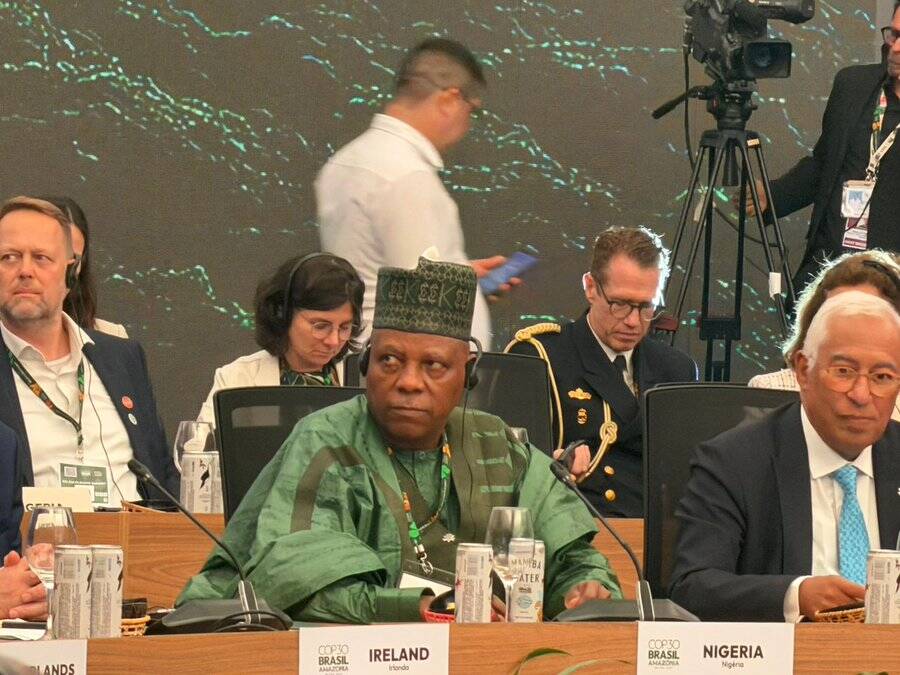Nigeria has called on the international community to increase global financing for nature protection, stressing that the restoration of forests, oceans, and landscapes requires predictable, equitable, and accessible funding mechanisms.
Speaking in Belem, Brazil, at a high-level thematic session on “Climate and Nature: Forests and Oceans” during the ongoing United Nations Climate Change Conference (COP30), Vice President, Kashim Shettima, who represented President Bola Tinubu, argued that since nature is a shared global resource, its protection demands global solidarity.
Shettima announced that Nigeria is taking proactive steps to balance climate, nature, and development, targeting the mobilisation of up to $3 billion annually in climate finance.
This funding will be mobilised through the country’s National Carbon Market Framework and Climate Change Fund.
The resources will be reinvested in community-led reforestation, blue carbon projects, and sustainable agriculture.
Shettima lamented that nature has historically been treated as a commodity for exploitation rather than a critical asset deserving of investment.

Shettima contended that countries in the Global South, which contributed the least to the climate crisis, are currently paying the highest price.
He insisted that for climate justice to be served, nations that benefited most from centuries of extraction must now lead in restoration.
READ ALSO
He urged the global community to take concrete steps to address environmental challenges.
These, he said, should include scaling up grant-based finance for nature-based solutions and operationalising Blue Carbon Markets under Article 6 of the Paris Agreement.
He also called for the implementation of debt-for-nature swaps to enable developing countries to invest more in conservation.
Additionally, he emphasised the need to strengthen community-led governance that rewards indigenous peoples, farmers, and fisherfolk for their environmental stewardship.
Highlighting Nigeria’s domestic efforts, Shettima noted that the Climate Change Act 2021 legally enshrines nature-based solutions.
Key national initiatives include the implementation of the Great Green Wall Initiative, which focuses on reforesting degraded lands and planting over ten million trees across eleven frontline states.
The government has also set a target to restore more than two million hectares of degraded land by 2030 under the National Afforestation Programme.
Additionally, the Marine and Blue Economy Policy was launched to promote climate-smart fisheries and enhance coastal protection.
He rejected the narrative of Africa as a mere victim of climate change, positioning the continent as a source of solutions due to its vast untapped carbon sinks—including rainforests, mangroves, and oceans—and its large young, innovative population.
He invited global partners to support the African Nature Finance Framework to unlock private capital for ecosystem restoration across the continent.